Abstract
Anticonvulsant medication was stopped in a prospective study in 116 children with epilepsy who had had no seizures for a period of 2 years. A remission rate of 80.5% was found 5 years after withdrawal. The population studied was unselected, and based on children directly referred by general practitioners to the outpatient department. Among the many variables examined, such as type of epilepsy or seizure, presence of concomitant neurological or intellectual deficit, and epileptiform activity on the EEG, only the age of onset of seizures was significantly and positively correlated with the probability of recurrence after discontinuation of medication. In contrast to other recent studies, it was concluded that there are no reliable predictive factors for withholding from any individual "epileptic" child the benefit of attempts to stop medication after 2 years of seizure freedom.
Full text
PDF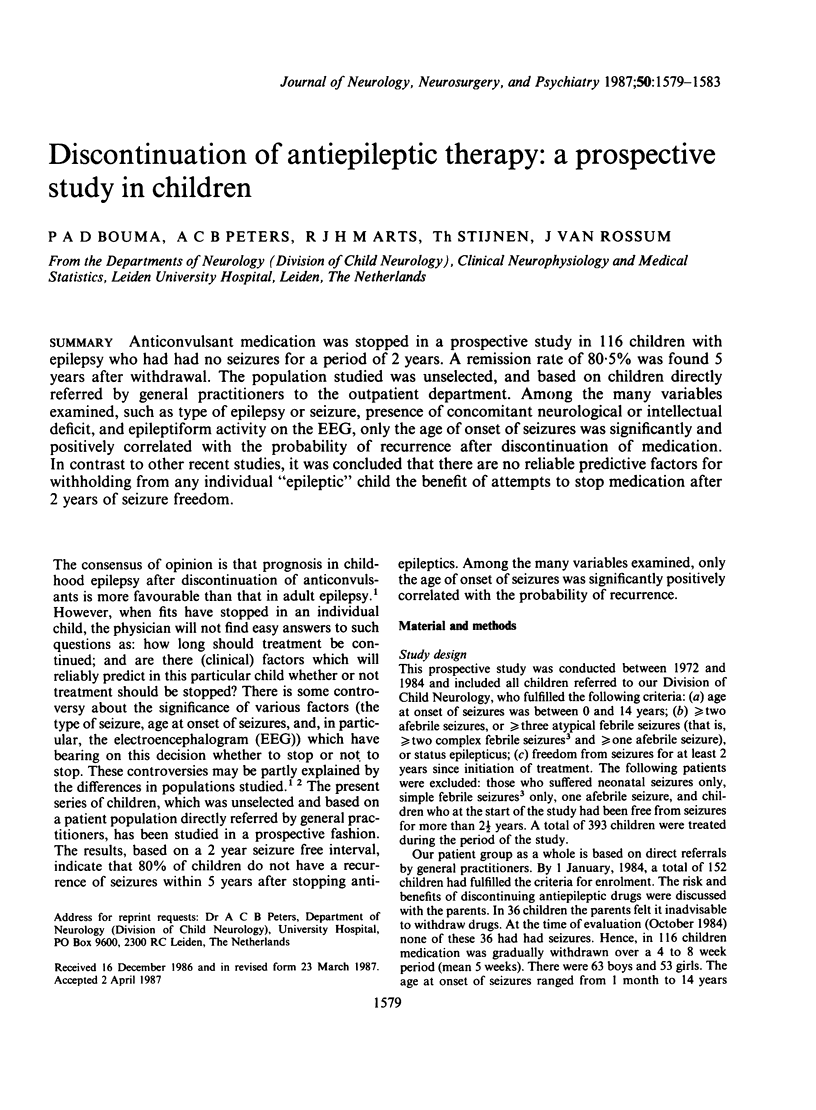
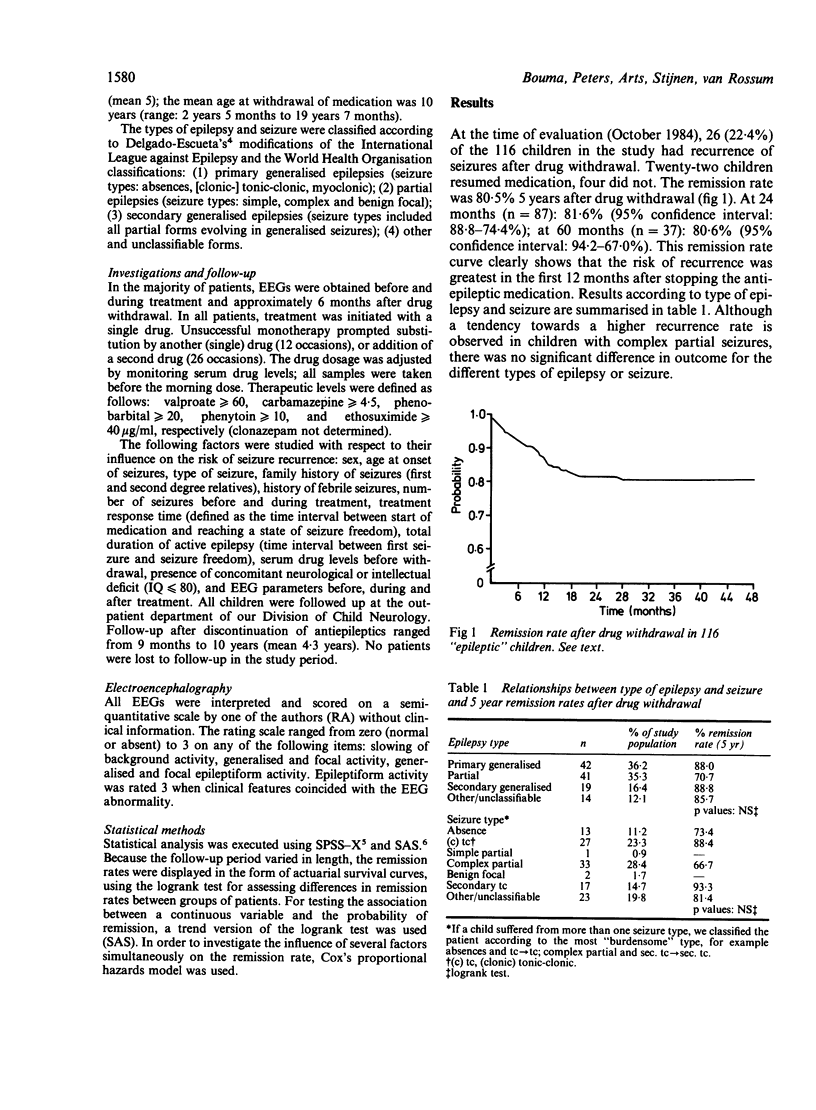
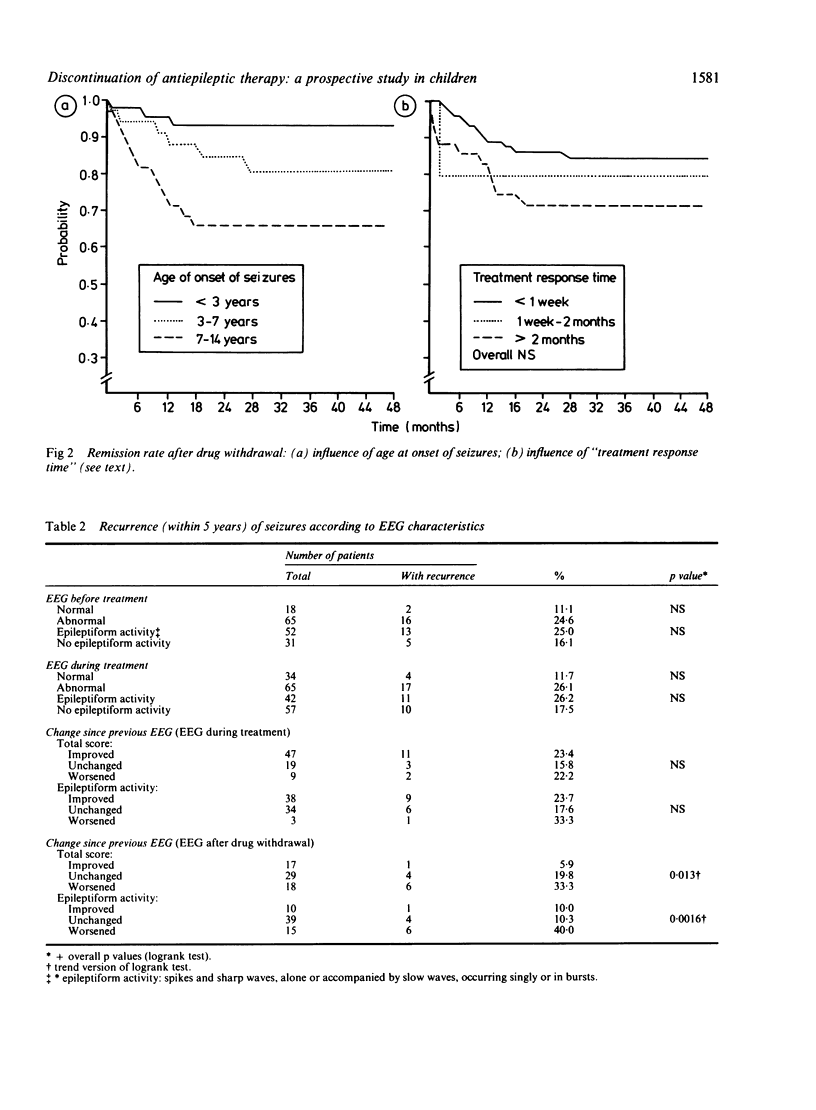
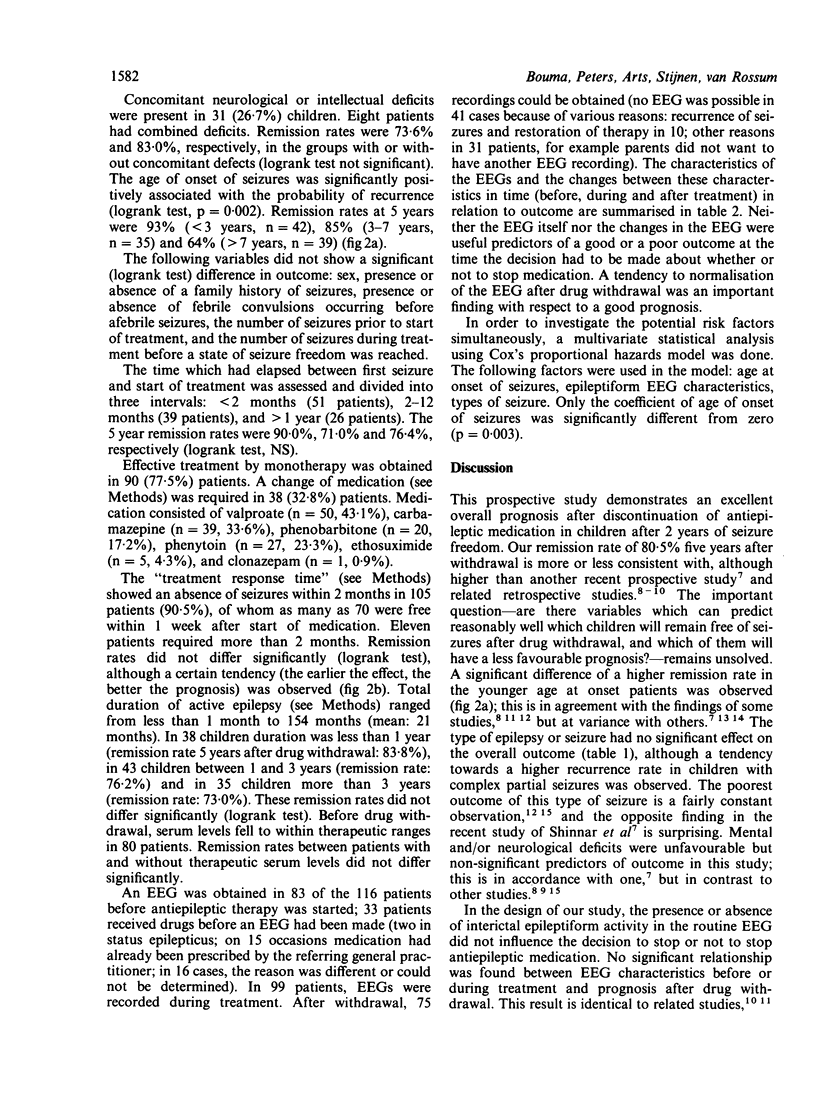
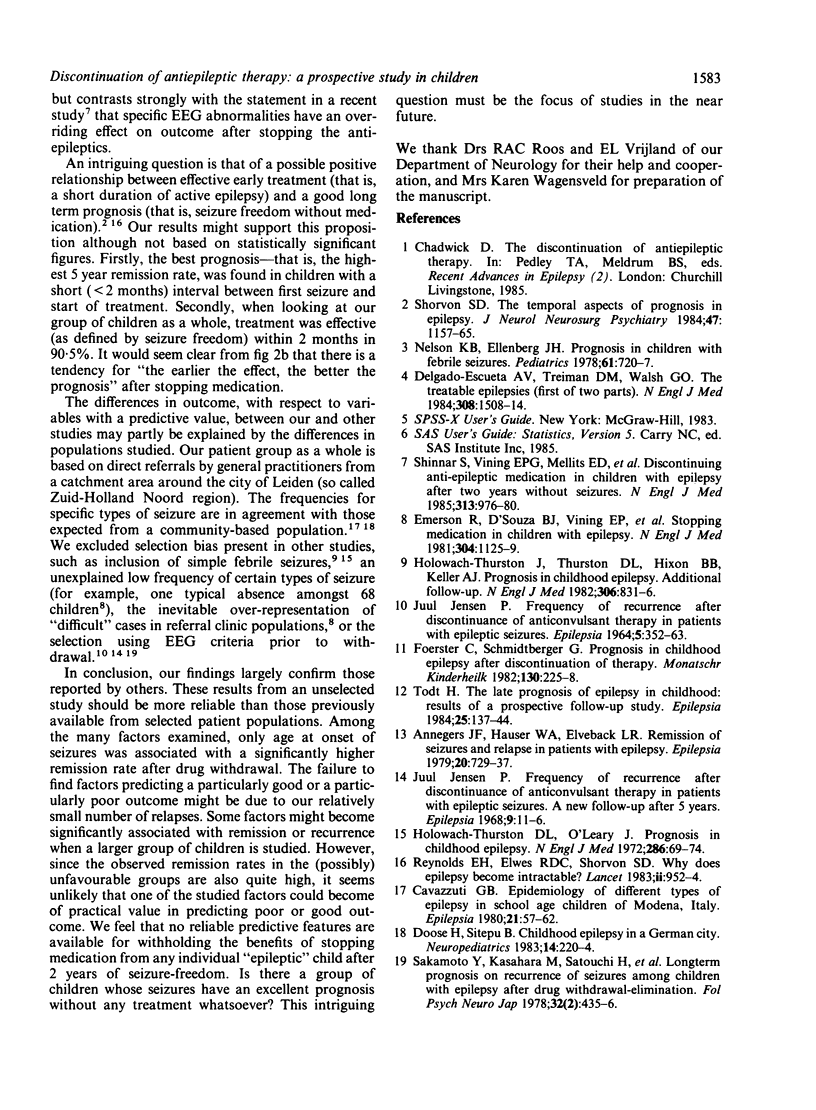
Selected References
These references are in PubMed. This may not be the complete list of references from this article.
- Annegers J. F., Hauser W. A., Elveback L. R. Remission of seizures and relapse in patients with epilepsy. Epilepsia. 1979 Dec;20(6):729–737. doi: 10.1111/j.1528-1157.1979.tb04857.x. [DOI] [PubMed] [Google Scholar]
- Cavazzuti G. B. Epidemiology of different types of epilepsy in school age children of Modena, Italy. Epilepsia. 1980 Feb;21(1):57–62. doi: 10.1111/j.1528-1157.1980.tb04044.x. [DOI] [PubMed] [Google Scholar]
- Delgado-Escueta A. V., Treiman D. M., Walsh G. O. The treatable epilepsies. N Engl J Med. 1983 Jun 23;308(25):1508–1514. doi: 10.1056/NEJM198306233082506. [DOI] [PubMed] [Google Scholar]
- Doose H., Sitepu B. Childhood epilepsy in a German city. Neuropediatrics. 1983 Nov;14(4):220–224. doi: 10.1055/s-2008-1059582. [DOI] [PubMed] [Google Scholar]
- Juul-Jensen P. Frequency of recurrence after discontinuance of anticonvulsant therapy in patients with epileptic seizures: a new follow-up study after 5 years. Epilepsia. 1968 Mar;9(1):11–16. doi: 10.1111/j.1528-1157.1968.tb04953.x. [DOI] [PubMed] [Google Scholar]
- Nelson K. B., Ellenberg J. H. Prognosis in children with febrile seizures. Pediatrics. 1978 May;61(5):720–727. [PubMed] [Google Scholar]
- Reynolds E. H., Elwes R. D., Shorvon S. D. Why does epilepsy become intractable? Prevention of chronic epilepsy. Lancet. 1983 Oct 22;2(8356):952–954. doi: 10.1016/s0140-6736(83)90462-2. [DOI] [PubMed] [Google Scholar]
- Sakamoto Y., Kasahara M., Satouchi H., Amago A., Sageshima M. Long-term prognosis on recurrence of seizures among children with epilepsy after drug withdrawal-elimination. Folia Psychiatr Neurol Jpn. 1978;32(3):435–437. doi: 10.1111/j.1440-1819.1978.tb02813.x. [DOI] [PubMed] [Google Scholar]
- Shinnar S., Vining E. P., Mellits E. D., D'Souza B. J., Holden K., Baumgardner R. A., Freeman J. M. Discontinuing antiepileptic medication in children with epilepsy after two years without seizures. A prospective study. N Engl J Med. 1985 Oct 17;313(16):976–980. doi: 10.1056/NEJM198510173131603. [DOI] [PubMed] [Google Scholar]
- Shorvon S. D. The temporal aspects of prognosis in epilepsy. J Neurol Neurosurg Psychiatry. 1984 Nov;47(11):1157–1165. doi: 10.1136/jnnp.47.11.1157. [DOI] [PMC free article] [PubMed] [Google Scholar]
- Thurston J. H., Thurston D. L., Hixon B. B., Keller A. J. Prognosis in childhood epilepsy: additional follow-up of 148 children 15 to 23 years after withdrawal of anticonvulsant therapy. N Engl J Med. 1982 Apr 8;306(14):831–836. doi: 10.1056/NEJM198204083061403. [DOI] [PubMed] [Google Scholar]
- Todt H. The late prognosis of epilepsy in childhood: results of a prospective follow-up study. Epilepsia. 1984 Apr;25(2):137–144. doi: 10.1111/j.1528-1157.1984.tb04169.x. [DOI] [PubMed] [Google Scholar]


